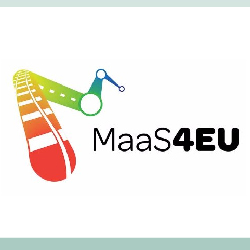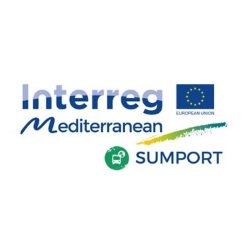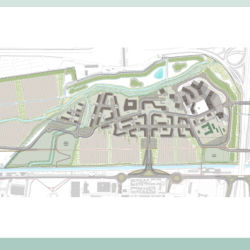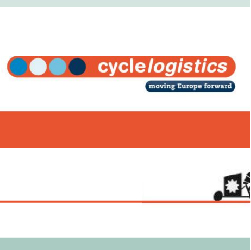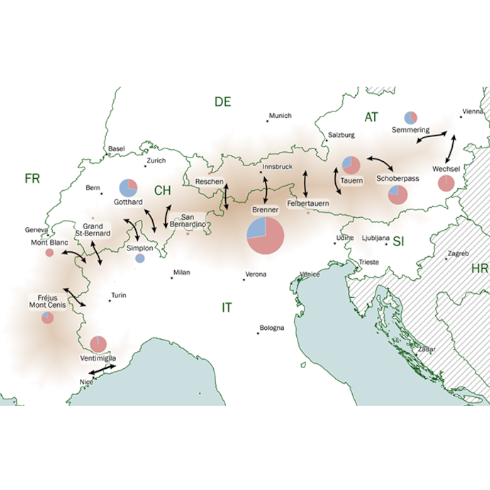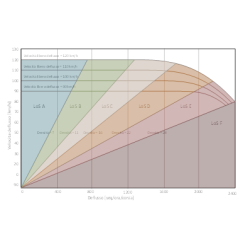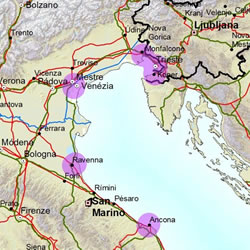- All
- African projects
- assessment
- assessment selected projects
- Assessment selected projects 2
- Assessment selected projects 3
- Assessment selected projects 4
- ASTRA
- Cost Benefit Analysis
- Electric mobility and ITS
- MOMOS
- planning
- planning selected projects
- planning selected projects 2
- planning selected projects 3
- planning selected projects 4
- planning selected projects 5
- projects
- Railways projects
- research
- research selected projects
- research selected projects 2
- research selected projects 3
- studies
- studies selected projects 1
- studies selected projects 2
- studies selected projects 3
- studies selected projects 4
- studies selected projects 5
- TRTingegneria
- TRUST
- urban mobility
- End-to-End Approach for Mobility-as-a-Service tools, business models, enabling framework and evidence for European seamless mobility MaaS4EU project’s objective is to explore the concept of Mobility as a Service (MaaS) which represents a radical change in the mobility sector. In this concept the mobility integrator (MaaS Operator) brings together differents mobility service providers (Mobility Service Provider) and provides the end-users with access to an integrated digital interface (MaaS4EU Mobility Platform), allowing them to plan and pay for their trips in a one-stop-shop. Maas4EU aim is to deeply analyze the possibilities for the implementation of the Maas concept and set the framework by defining sustainable business models that support the cooperation across transport stakeholders, understanding user needs and choices, implementing the required technological infrastructure and identifying the enabling policy and regulatory frameworks The project focuses in particular on the four key aspects related to: TRT’s activities within the MaaS4EU project mainly focused on supporting the design of the Business Models related to the 3 pilot projects. TRT analysed the legal and policy framework enabling the MaaS ecosystems. TRT was also responsible for the communication and dissemination activities of the project. MaaS4EU foresees 3 real life demos in the following areas: Budapest (Toll Service is the MaaS operator) (Urban & Cross-border trips) Greater Manchester (TFGM is the MaaS operator) (Urban & Intercity trips) Luxembourg (SLA is the MaaS operator) (Cross-border & Urban trips) For more information MaaS4EU – Pich presentation MaaS4EU – Brochure Final conference and video recording of the event Paper: Mobility-as-a-service: insights to policymakers and prospective MaaS operators Mobility as a Service (MaaS) and Sustainable Urban Mobility Planning – Topic Guides, Guidelines for developing and implementing a Sustainable Urban Mobility Plan (2nd edition) – Year 2019 Making European cities greener, Towards clean and smart mobility – Horizon 2020 – Year 2019
- SUMPORT project: training on Sustainable Urban Mobility Plans (SUMPs) SUMPORT is a project funded under the Interreg Mediterranean EU programme. SUMPORT’s main objective is the improvement of sustainable mobility in MED port cities, by fostering the uptake of Sustainable Urban Mobility Plans in the MED area, with a specific focus on integrating city- and port-related traffic flows in the sustainable public transport planning. Trainings for the drafting of SUMPs based on the EU SUMP concept elaborated by the European Commission and the EU guidelines are a key component of SUMPORT, thanks to which MED port cities not having or developing SUMPs will be able to gain knowledge and ability to draft this planning tool in their local contexts. TRT is in charge of the development and provision of the training programme, based on four modules to be delivered respectively in Valencia (ES), Koper (SI), Igoumentisa (EL) and Limassol (CY). The training programme is intended to provide public officials and local practitioners of SUMPORT cities with the basic knowledge useful to successfully complete a SUMP planning cycle. The proposed approach is based on the following pillars: face-to-face training offering both information and inspiration from experts, training relevant to the particular target (i.e. port cities), information streamlined and condensed (as there are enough manuals and guidance documents already).
- “Policlinico, Mangiagalli e Regina Elena” Hospital in Milan (Italy) TRT, being part of a multi-disciplinary consortium, participated to (and won) an international architectural and urban planning contest for the renewal of Milan’s Policlinico hospital complex (an health center that counts over 10,000 visits per day), taking care of the aspects related to mobility and transport economics. The project has been developed in four phases: the contest (won) (2008); the preliminary project (2009); the final project (2010 and its update in 2017); the executive project (2018). During the different phases, TRT activities concerned: the definition of the hospital accessibility with motor vehicles and sustainable transport modes (public transport, pedestrian, bicycles); the design of an underground car park with over 500 parking spaces, able to satisfy the demand for parking in the whole area; the definition of the traffic flow patterns (both for pedestrians and vehicles, as well as for visitors and logistics) inside the hospital area and in its surrounding area; the study of the accessibility of the building site.
- Project for the new ’AT1-Città Nuova’ district in the Municipality of Rozzano: Sustainable mobility solutions “A human city does not separate its functions: the house here, the work there, the free time there… A human city is the one that creates the mixture: of activities, of income, of ages. The more mixed we do, the more human it is. “ (Jaime Lerner Architect and Urban Planner) The study addresses and offers solutions for the mobility impacts of the future development of the “AT1 – Città Nuova” area in the Municipality of Rozzano (MI). In depth multidisciplinary analyzes have led to the identification of the a suitable functional mix that allows a quality intervention which is sustainable from an environmental, social and economic perspective. While the business sector located in the northern area represents the driving force for developing the whole masterplan, the southern area will mainly host residences and services. TRT’s main activities were mainly related to: the selection of a suitable mobility scenario (transport and infrastructural), able to be developed gradually while following the evolution of the settlement intervention, with particular focus on sustainable mobility, low impact and with high management standards; the development of a transport study which, through solid quantitative analyzes and modeling simulations, defines the performance characteristics and the level of accessibility of the transport scheme selected for the area. Related projects – Integrated Planning Programme “PII1 -Milanofiori Sud”
- Cyclelogistics Ahead – A key step towards zero emissions logistics in cities Cyclelogistics Ahead makes use of existing know‐how, guidelines and best‐practice examples developed by previous or on‐going EU projects focusing on urban freight delivery. Although many European projects have already produced a multitude of strategies on how to work towards zero emission urban logistics, these concepts and plans have rarely been implemented. Cyclelogistics Ahead proposes a unique solution to the above‐mentioned problems by using the successful bottom‐up approach from the Cyclelogistics project. In it, the active use of cargo‐bikes has started up zero emission logistics in cities, which then motivated stakeholders to initiate more ambitious strategies and implementations. TRT deals with the analysis of the state of the art and evolution of the cyclelogistics market in Europe. Through its subsidiary Triclò, tests services of food delivery and micro-consolidation in Milan (Italy).
- Transalpine Observatory – Data collection and analysis of freight flows across the Alps The objective of the Observatory is to collect and make available the information for the EU-CH Terrestrial Transport Committee implementing and managing the Agreement on Terrestrial Transport between the European Union and Switzerland on 21 June 1999. As a part of the Consortium, TRT has collected, verified and analysed data on road, rail and combined transport activities through the Alps for Italian side. The types of collected data involved information on traffic, infrastructure, vehicles, transported goods, market operators, costs and environmental impacts. All data have been compared for the period 2020-2023 regarding the borders with France, Switzerland and Austria. One of the main interest of the project has been the evaluation in time of the modal split across the Alps useful for the reduction of transport’s environmental impact. TRT has also worked on designing and updating the cost model on road and combined transport, Unaccompanied (UCT) Accompanied (ACT) and Motorway Of the Sea (MoS), adoptable also for other spatial contests.
- Study on the deployment of Cooperative ITS in Europe The objective of the study is to support the Commission Services in the preparation of a Communication and Roadmap on the deployment of cooperative ITS (С-ITS) in Europe, as part of the Commission’s digital single market strategy. In order to identify the most appropriate EU strategy, a set of credible scenarios for deployment have been developed. This clarify the benefits and costs of C-ITS to different actors as a result of different development pathways. TRT supported the cost-benefit analysis by modelling the impacts of deployment scenarios through the usage of European scale modelling tools ASTRA and TRUST.
- Traffic forecasts for the TiBre motorway interconnection (Italy) Traffic forecasts and analysis of the functionality of the interconnection among the A1, A15 and Tibre motorways (Italy). Key activities: estimating the expected flows at the node for the year 2025 by reviewing previously produced estimates in the preparation of the final design of the interconnection between the Cisa A15 and Brenner A22 motorways, estimation of the levels of service of the entry and exit ramps on the A1 motorway and the entry ramps on the A15 and Tibre motorways, according to the 2000 Highway Capacity Manual methodology, assessment of the functionality of entry ramps of the A1, A15 and Tibre motorways by means of a AIMSUN microsimulation model.
- Adriatic Gateway – Development of the Northern Adriatic port cluster The main objective of the project was to develop the Adriatic Gateway integrating the Northern Adriatic Port Cluster in order to meet the upcoming requirements for the fundamental role that the Adriatic Corridor should play in the European transportation network. The project was structured in three phases: traffic and market studies providing an overall picture of present and future transport demand and supply in Europe, definition of a model of excellence for a multi-port gateway. The Adriatic Gateway Model, intended as a multi-port, designing whether and how the pre-identified “excellent” models can be applied to the specific case of the AG and more generally the Mediterranean Area.

